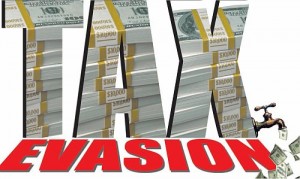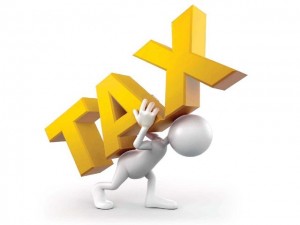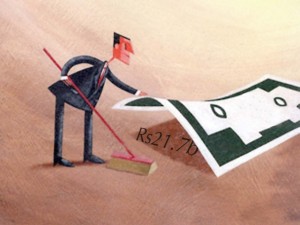Tax Evasion
What is tax evasion?
Why you should report tax evasion
Tax evasion is defined as an illegal act of not paying federal tax or even state tax. The usual form of tax evasion is misrepresentation of gross income resulting in the inaccurate computation of due taxes. Although evasion and avoidance may be synonymous, they are entirely different in the aspect of taxation. Tax avoidance uses legal means in order to reduce the burden of tax.
The Ultimate Economic Crime
Taxes are collected in order to fund functions of the government. Because tax evasion would mean compromise of the government’s revenue, thus its functions to its citizens, it is considered as an economic crime. Taken in the context of individuality, evading taxes mean savings. However, in exchange for not paying due federal tax or state tax, the welfare of responsibilities of the state are sacrificed. Unfortunately, tax evasion is considered as the most common economic crime. This means, those publicly convicted for federal tax evasion are just 1 of millions who evade taxes, corporations and other taxpaying entities included. Over one billion of government revenue remains uncollected annually because of tax evasion.
Tax Breaks as Tax Evasion
Tax breaks are entirely different from tax evasion. Deductions on tax are considered tax breaks. These deductions may be done by the Internal Revenue Service on your federal tax when you have dependents, donated to charities, or as an incentive. Tax breaks are given as incentives for companies that play a big role in the economic development of the state, or what may be called tax holidays from state tax. During tax filing, request for extension may be done in order to consider these deductions on your income tax. You may be misled that companies do corporate social responsibility to evade tax. It is a legal means to experience tax deductions which may be converted as profits for the company.
Reckoning Uncollected Tax
There are two methods to estimate the degree of tax evasion, direct and indirect methods. For direct methods, the most accurate is through auditing of an individual’s income or a corporation’s books. Another method of direct measurement is through surveys of taxpayer’s attitude to paying federal tax. For indirect means of measuring, one means is through looking into statistics of discrepancies between income and expenditures in the national level. Other indirect means also involve inferential analysis of data which are very prone to errors and inaccuracy.
Knowing People Who Evade Taxes
Many economists and other experts on public governance have theorized on why people evade taxes. In the computation of federal tax, bracketing is done giving a socialized collection of taxes. Those with less income pay less tax and those with higher income pay more taxes. The same goes for states which collect income tax. One reason behind tax evasion may be because of the debt crisis which is logical for citizens in the lower rungs of the economic strata. In the advent of the economic crisis, news articles of affected employees who evade taxes have been reported. This goes for individuals who have other things to prioritize like basic needs of food, shelter and clothing rather than fund the government. However, for individuals and corporations who belong to the highest echelons of society, then tax evasion may be because of profits and gains. Another reason is that the government may have failed to allot the revenues from federal tax or state tax into projects that taxpayers can directly benefit from. This results to taxpayers’ discontent on the government administration and misconduct or no conduct at all of supposedly citizens’ responsibilities.
What the Tax Law States
In order to prove without reasonable doubt that you have evaded to pay your federal tax, the following elements must be presented to the court: first that you have unpaid liability; second that you acted affirmatively, and not just failed to act on, the attempt to the inaccurate assessment of tax or evaded its payment and; third that you have intended to do so. This is stated in the Internal Revenue Code of the Unites Sates under Section 7201. The penalty of being found guilty of the crime of tax evasion is a fine of not more one hundred thousand dollars or five hundred thousand dollars for a corporation; or imprisonment for not more than five years, or both. The cost of prosecution is not yet included in this computation.
Scandalous Tax Evasion Conviction
The usual people who get publicly scandalized by evading paying federal tax are celebrities. There may a number of reasons, some of them possibly legitimate, why they are unable to pay federal tax or state tax. One of which is that the high life made them forget to file for an extension during tax filing. The IRS has already made e-file where all you have to do is settle your federal tax and even state tax in a number of clicks without having to leave the comfort of your home. The IRS is not biased on celebrities, the news are good scoops for the press.
To learn more about tax evasion penalties Click Here





